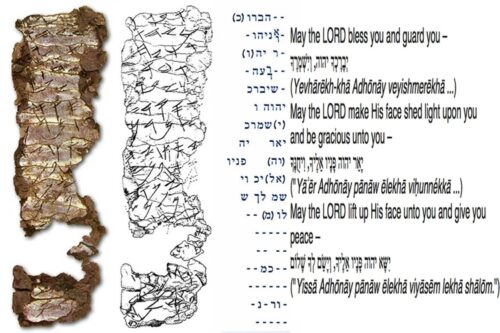Why Do Christians Call God ‘Father’?
In our conversations about faith, questions often arise about the language we use for God. Why do Christians consistently refer to God as “Father” rather than “Mother.” This isn’t merely a matter of cultural preference or tradition—it goes to the heart of how God has chosen to reveal Himself to us.
GOD’S SELF-REVELATION IN SCRIPTURE
Throughout Scripture—from Genesis to Revelation—God consistently reveals Himself using masculine pronouns and imagery. Most significantly, Jesus Himself taught us to pray beginning with “Our Father in heaven” (Matthew 6:9). Jesus, who knew God more intimately than anyone, exclusively referred to God as Father—using the term nearly 170 times in the Gospels.
This wasn’t arbitrary. Jesus emphasised His unique relationship with the Father, saying, “I and the Father are one” (John 10:30) and “No one knows the Father except the Son and those to whom the Son chooses to reveal him” (Matthew 11:27). The Father-Son relationship reveals something essential about God’s nature and His relationship with us.
MATERNAL IMAGERY IN SCRIPTURE
This isn’t to say God never uses maternal imagery for Himself in Scripture. In Isaiah 49:15 He compares His faithfulness to that of a nursing mother: “Can a mother forget the baby at her breast and have no compassion on the child she has borne? Though she may forget, I will not forget you!” Similarly, in Isaiah 66:13, God says, “As a mother comforts her child, so will I comfort you.”
However, these are metaphorical comparisons describing aspects of God’s care, not titles or names God claims for Himself. They illustrate God’s tender compassion but don’t override His consistent self-revelation as Father. Scripture uses many metaphors for God—rock, shepherd, fortress—but these describe His attributes rather than naming His person.
CHRISTIANS CALL GOD FATHER: THE THEOLOGICAL SIGNIFICANCE
The Father language for God carries profound theological weight. It speaks to:
- Creation and authority: In ancient Near Eastern culture, fathers were the life-givers and family heads, reflecting God’s role as Creator and Sovereign.
- Covenant relationship: The father-child relationship expresses the covenant bond between God and His people.
- Inheritance: Fathers bestowed inheritance, paralleling our spiritual inheritance in Christ.
- The Trinity: The eternal relationship between Father and Son reveals something essential about God’s inner life and character.
The name “Father”, then, isn’t incidental—it communicates core truths about who God is and how He relates to us.
THE REFORMED PERSPECTIVE ON DIVINE REVELATION
Reformed theology emphasises the authority of Scripture and the importance of allowing God to define Himself on His own terms. We practice what theologians call the “regulative principle”—the belief that our worship and doctrine should be governed by what Scripture explicitly teaches.
God has accommodated Himself to our understanding by using human language, but He chose specific language. As finite creatures, we must submit to God’s self-revelation rather than recasting Him according to our preferences or cultural trends.
This doesn’t mean Scripture presents God as male in a biological sense. God is spirit (John 4:24) and transcends biological sex. But He has purposefully revealed Himself through masculine imagery and the name “Father.”
CHRISTIANS CALL GOD FATHER: ADDRESSING COMMON OBJECTIONS
Isn’t this just cultural patriarchy? While Scripture was written in patriarchal cultures, God’s self-revelation transcends and often challenges those cultures. Jesus elevated women in countercultural ways, yet maintained the Father language for God.
Doesn’t this diminish women’s dignity? Not at all. Both men and women are created in God’s image (Genesis 1:27). God’s fatherhood doesn’t elevate maleness any more than describing the church as the “bride of Christ” elevates femaleness. These are theological realities that transcend human gender while using it as meaningful analogy.
Shouldn’t it be left to individuals to decide how they address God? How we address God isn’t arbitrary—it reflects our submission to His self-revelation. When we pray “Our Father,” we acknowledge we relate to God on His terms. And not ours.
CONCLUSION: EMBRACING GOD AS HE IS
Christians refer to God as Father because that’s how He has chosen to reveal Himself, most personally through Jesus Christ. This isn’t about cultural bias but divine self-disclosure.
The question isn’t whether we find the imagery comfortable or politically acceptable, but whether we’ll receive God as He has made Himself known. To substitute “Mother” for “Father” would be to remake God in our image rather than humbly receiving Him as He is.
As we seek to know God more deeply, we must start with how He has spoken of Himself. The God who sometimes compares His love to a mother’s has nevertheless consistently named Himself Father. In embracing this revelation, we embrace not cultural prejudice, but God himself—on His terms, not ours.
CHRISTIANS CALL GOD FATHER: RELATED FAQs
Since the Hebrew word for Spirit (ruach) is feminine, doesn’t this suggest some feminine aspect to God? While “ruach” is grammatically feminine in Hebrew, grammatical gender doesn’t necessarily indicate actual gender identity. The Bible consistently uses masculine pronouns for all persons of the Trinity, including the Holy Spirit, showing that grammatical gender of words doesn’t determine God’s self-revelation.
- How do Christians explain Jesus’ lament over Jerusalem where He compares Himself to a mother hen (Matthew 23:37)? Jesus’ metaphor of gathering Jerusalem’s children “as a hen gathers her chicks” represents a tender protective action, not a statement about his divine identity. Similarly to the maternal imagery occasionally used for God in the Old Testament, this is a compassionate comparison rather than a title or name.
- Why did some early Christian mystics use feminine imagery for God despite the Bible’s predominantly masculine language? Some Christian mystics, like Julian of Norwich, occasionally used feminine imagery to express aspects of God’s nurturing and tender qualities they experienced. These were personal devotional expressions meant to complement, not replace, the revealed name “Father,” and were never considered formal doctrine.
If God transcends gender, why insist on “Father” language at all? Though God transcends biological sex, He doesn’t transcend self-revelation—how He has chosen to make Himself known matters. God has revealed Himself as “Father” not because He is male but because the father-child relationship communicates essential truths about our relationship with Him that He wants us to understand.
- How should Christian women relate to God as Father if they’ve had difficult relationships with their earthly fathers? God as Father represents the perfect father—what every earthly father should be but often fails to be. Women (and men) with father wounds can find healing in knowing God as the ideal Father who never abandons, abuses, or disappoints, gradually redeeming and transforming their understanding of fatherhood through relationship with Him.
- Do Eastern Orthodox Christians have a different understanding of divine gender language than Western Christians? While Eastern Orthodoxy places more emphasis on divine mystery and apophatic theology (describing God by what He is not), they maintain the same commitment to God’s self-revelation as Father. Orthodox theology, like Western traditions, preserves Trinitarian language of Father, Son, and Spirit while acknowledging God transcends human categories.
How does calling God “Father” affect interfaith dialogue, particularly with traditions that emphasise divine gender neutrality? Christians in interfaith settings can explain “Father” isn’t about biological maleness but about God’s self-revelation and relationship with humanity. While respecting other traditions’ perspectives, Christians remain faithful to how God has revealed Himself, finding common ground in discussing what these metaphors are trying to communicate about the divine nature.
CHRISTIANS CALL GOD FATHER: OUR RELATED POSTS
- Father, Forgive Them: Who Was Jesus Praying For?
- Grace in Motion: Why Did the Prodigal’s Father Run?
- The Eternal Son: How Is Jesus Begotten of the Father?
Editor’s Pick
The Ketef Hinnom Scrolls: An Accidental Yet Phenomenal Find
SMALLER THAN OUR PALM, OLDER THAN THE DEAD SEA SCROLLS In 1979, a bored 13-year-old volunteer at an archaeological dig [...]

Caught in Adultery: How Reliable Is the John 8 Story?
"Let him who is without sin cast the first stone." Few Bible scenes capture Jesus' wisdom and grace quite like [...]

What Did the Inscription on Jesus’ Cross Really Say?
A REFORMED RESPONSE TO CLAIMS OF GOSPEL CONTRADICTIONS Sceptics love to point out what they see as a glaring contradiction [...]

How Many Times Did the Rooster Crow at Peter’s Denial?
THE CHALLENGE When sceptics want to undermine Scripture’s reliability, they often point to Peter’s denial as Exhibit A for supposed [...]

Biblical and Systematic Theology: Why Do We Need Both?
TWO LENSES, ONE TRUTH Picture this familiar scene: A seminary student sits in the library, torn between two stacks of [...]

The Mysterious Two: Who Are the Anointed Ones in Zechariah?
Picture this: a golden lampstand blazing with light, flanked by two olive trees that pour oil directly into the lamp’s [...]

Regeneration Or Faith? Which Comes First in Salvation?
In the moment of salvation, does God regenerate our hearts first, or do we believe first? How we answer this [...]

Interracial Marriages: Does God Frown On Them?
The question hits close to home for many Christian couples and families today. As our churches become increasingly diverse, believers [...]
‘Because Angels Are Watching’: What Does 1 Corinthians 11:10 Mean?
“For this reason the woman ought to have authority on her head, because of the angels” (1 Corinthians 11:10, ESV). [...]

Why Does God Torment Saul With An Evil Spirit?
Would a holy God send an evil spirit to torment someone? This theological puzzle confronts us in the biblical account [...]







